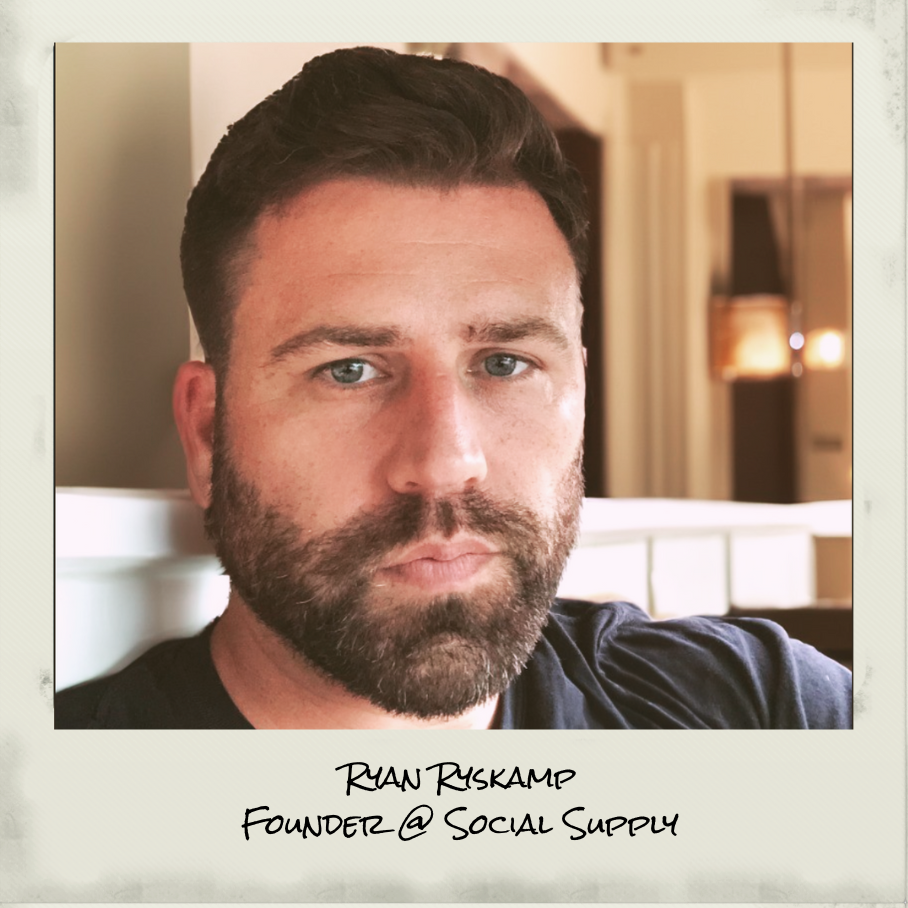How Scrappy Builds and Wise Pivots Built a Human-Centered Events Company
No one plans on building their business in a parents’ garage, chasing deadlines on three hours of sleep, learning as they go. But from where Ryan Ryskamp stands now, a 50,000 sq ft warehouse alive with fabricators, CNC equipment, and creative momentum, he can look back and see how those early scrappy years made all the difference.
Ryan and his wife didn’t set out to found a production and design company. She was a wedding planner, thriving in her industry, and he was hustling to get a boutique marketing firm off the ground. But life, as it likes to do, offered up an unexpected lane. He joined her on event crews, at first just for some extra cash, but soon, he got pulled in by the world behind the scenes: how to make ideas real, not just beautiful.
In those first years, the plan was to keep it lean: be the agency that connects clients to solutions, outsource the builds, and coordinate all the moving parts. They quickly realized outsourcers couldn’t translate their vision with the kind of precision that made the work feel like theirs. There was only one solution: do it themselves. So they learned how. One garage became storage units, which became a warehouse, which became their signature space. Every leap, a little forced, a little hopeful, was driven by the same hunger: if you want something done right, build the tools, park the inventory, and adapt until you can deliver.
Now, with a full fabrication shop, custom inventory, and a reputation stretching all the way to brands like Nike (even if they never shout about it), Social Supply is known not just for their ability to dream, but their grit in the execution of those dreams. Their newest move, a historic event venue in DC, years in the making and triple its original budget, puts them in a position to shape events from the start rather than wait for a planner to bring them to the table.
The business isn’t a clean split: he holds the vision, future plans, and the backend. His wife helms the day-to-day operations and client relationships, each vying for forward motion and a bit of control. Not surprisingly, blending marriage and partnership has been its own epic learning curve. Sometimes she just needs a husband, not a problem-solver. Sometimes, the job is learning to listen, not to fix, but to be there. Finding “church and state” boundaries in a world glued together by 24/7 emergencies hasn’t been easy. But it’s the kind of work that matters both at home and in the business: show up, stay present, learn to separate the urgent from the important.
Getting the business here took more than creative ideas. In the early days, there was no such thing as a normal shift. Days blurred into nights as they transitioned from designing at a desk to welding or packing up equipment at midnight. If a last-minute breakdown called, they might stay awake for two days, patching the build and pulling off an event that couldn’t be delayed by a minute. They learned by necessity, got good at figuring things out on the fly, and maybe what they developed more than anything else was that unfair confidence—the quiet assurance that, whatever happens, we’ll figure it out.
Their vision has evolved. What began as an ego-driven drive to see their designs recognized now turns toward something quieter: creating spaces where people become present. The real art, for Ryan, is making something so immersive that even an influencer forgets their phone and just experiences the moment. They want to be known for connecting people to each other, not just for going viral. The satisfaction is in seeing their work become the backdrop for life’s milestones, and, increasingly, public installations that serve thousands a day, where anyone can step in, get lost, and, just for a shift, leave the chaos behind.
If there’s advice to give, he keeps it simple: sales, funding, operations, and commitment. Revenue comes first, even if it’s cobbled together on credit cards. Learn your operations, figure things out before you know how. And when obstacles show up disguised as opportunities, take them. The relentless willingness to try, fail, iterate, and outlast setbacks is what separates those who want to build a business from those who do. Endless commitment, that’s what actually gets you through.
Thrive builds highly vetted peer groups for founders. Curious who you’d be matched with? Book a call today.

